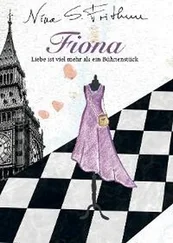“Oh,” Esme said. “That.”
“So you know what I say? I say I know nothing. No clue what she’s talking about.”
“Good for you,” Esme said. “You know nothing, check.”
“Exactly,” he said, and she could tell he was rethinking the anger. Sometimes his only job was to preserve maximum deniability. Other times, he was just too pissed off to care. “So, what the fuck, Esme? My father-in-law? Have you lost your mind?”
“I know what I’m doing,” she said. If it came to it, she would tell Jim his father-in-law had an emotional rapport with the team’s assignment that the others did not. She pressed the phone into the side of her face. “I gotta go,” she said, and hung up.
Ten minutes later, Jim was at the door. He was in snow pants and sweater, like the ski lift had gone up without him. He walked so fast, it took Esme a second to hear the squall issuing from his boots, scraped across the flagstone. Like crampons were fanged to his soles.
“Sexy,” he said, and he pointed at her slippers. One had a hole at the toe.
He held a cappuccino in a travel mug, which seemed like it would diminish the pleasure of this drink, except he uncapped the mug and routed the foam with a straw, which he used to point at the files on her table. “May I?”
She gathered them up in a stack on her lap.
“What do you want, Jim? Everything’s fine.”
He laughed. “Fine, huh?” And here his face started to clench in prelude to a release of venom she had seen before. The night his wife swore to win custody of their daughter and never let him see her again. The minute after his boss told him to nail Thurlow Dan this week or resign.
He leaned back in his chair. Eased the front legs off the ground. Gripped his chin. Appeared to be choosing his words, then gave up. “You fucking cunt,” he said, sitting forward. “I find out this is some roundabout shit my wife hired you for, I’m going to kill you both. I ask for final intel on the Helix House, and you send in my father-in-law? Surely you know that if anything happens to him, I will not get custody of my daughter. That if he can connect me to this thing in any way, I won’t get custody of my daughter. ”
He stood. Swiped at Ida’s christmas cactus, knocked it to the floor.
“I want you to call them in right now,” he said. “After that, you’re done.”
She looked at the broken pot and waited for him to catch up with her thoughts. What they had, after all, was mutually assured destruction. A plan to assault the private residence of a man who had committed no crime anyone could prove — a plan to observe this man, wiretap his phones, bug his house — was hardly the kind of activity divorce court smiled upon, let alone criminal court. Esme knew this much. Jim was screwed.
He caught up to her thinking and toed the plant. “Fuck,” he said. He would buy her a new one.
“Just trust me.” And she stood to square the neck of his sweater. They were still lovers. She slipped her hand around his waist and pressed into his hip.
“Mohhhhhhhhhhhhhm!” Now Ida was at the door, hands pressed against the frame like it might crush her otherwise. Esme said, “Tulip, let’s talk,” and pointed at the chaise longue next to hers. Ida padded the stone and left prints. Her feet were wet. Esme had promised they’d go ice-skating. Ida had been cleaning her guards in the tub.
“Hey, they fit great,” Esme said, because she’d had Martin get Ida skorts in every hue. If her daughter wanted to icecapade, she was not going to flash everyone doing it. The skort was a magical thing. The hybrid was a magical thing. This child she had with Thurlow: pure magic. Her hair was straight and butter blond, parted at the side and slanted down her face, so that half the time, half her face was gone. Her skin was colored almond milk and freckled along the ridge of her cheekbones; she had acorn eyes — not just in color but size — and in all but height she looked just like her dad.
“They’re okay,” Ida said. “But I wanted black. They cost a little more, but whatever,” and she swept her hand like a docent at work, here at Versailles, etc.
“If that’s what you want, buttercup, just tell Martin.”
Ida started to roll her eyes but stopped midway. What was the point? She was so accustomed to being palmed off, it was hard to muster the pique. “Can’t you call me Ida?” she said. “Even Ma and Pop call me Ida.”
Esme winced. These were not words she wanted to hear. Ma and Pop. Especially in the present tense.
“Okay, honey bun. Ida. ”
“So when are we going?” Ida said, though she was not saying so much as whining. It was hard to know when the whine got telling of a developmental problem, but Esme was still pretty sure the distended vocals that sang her child’s needs were age appropriate. “There’ll be too many people if you take forever. Get dressed, Mom. Hurry up. ”
Esme said, “Okay, okay. Should I wear a skort, too?”
“Don’t try to be cute. Just get dressed.”
And like that, and because her extracurriculars were no joke, Ida pivoted on the ball of her foot — she was all grace — and danced down the aisle. At the door, she said, “Can we call Ma and Pop after?”
And Esme, who had gotten no better at lying to her daughter in the three weeks since her parents had died, pretended not to have heard. For all Ida knew, they were still alive and missing her every day.
Esme shook her head. Tried not to see the big picture, though this was like squinting at the drive-in.
Olgo’s phone. Ned’s phone. Bruce’s and Anne-Janet’s. No one was answering, and still no update. From the wings of this mission, a creep of remorse. Surely they would resurface soon, report, and resume their lives at home. And for her trouble, Esme would have delivered a new day in a sequence that seemed to stretch without end back to that first day without her husband. She did not dwell on the years intervening. Or perhaps she just had the worst memory of anyone she knew. Episodes stood out, but mostly she moved forward as the great slab doors shut behind her. And maybe this was for the best. When people got married and trailed behind their car a mobile of cans whose clamor would follow them into their new life — what sort of metaphor was that? Sever the ties. Move on. Forget everything that had ever happened to you the second it was over.
She could not possibly go ice-skating with her daughter today. Too much work, other priorities. Crystal was the answer. Esme buzzed the garage attendant and told him to reroute her to the greenhouse. Poor Crystal. She was Helix, but on the fringe. Her and her thousand-plus friends. What absurdity that a movement for unity had a secessionist fringe. It was true the Helix had started well before the purloined election of 2000, but if ever people were going to feel disenfranchised and furious and wanting to sever from the body that had hitherto united them, it had been in this aftermath and dawn of a new century. And there he’d been, Thurlow Dan, plugging away. Why else would the North Koreans have taken an interest unless on the bent knee of the Helix demographic was a rocket of dissent? Only a man like Thurlow would see in their overture something peaceable and grand. She smiled with the thought, then moved on.
Esme had plucked Crystal out of foster care four years ago. Her thinking then: I am lonely without my own daughter but won’t have to mind a teenager half as much. But then Esme ended up barely minding Crystal at all. And so, for having lived in the mansion and seen so little of Esme, Crystal must have realized that her foster mom — whom she called Godmom because it sounded less tragic — was less keen on her than on having acquired her.
Читать дальше












